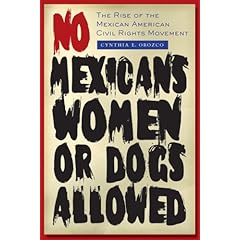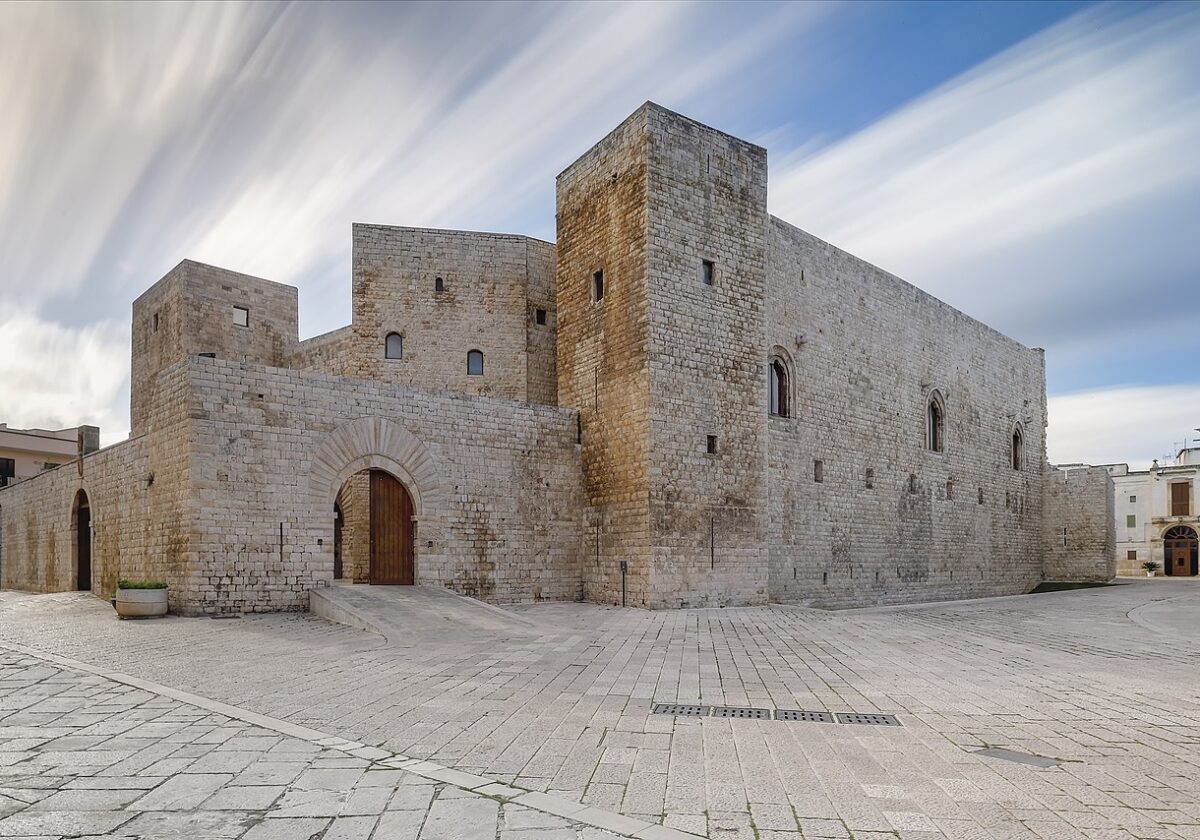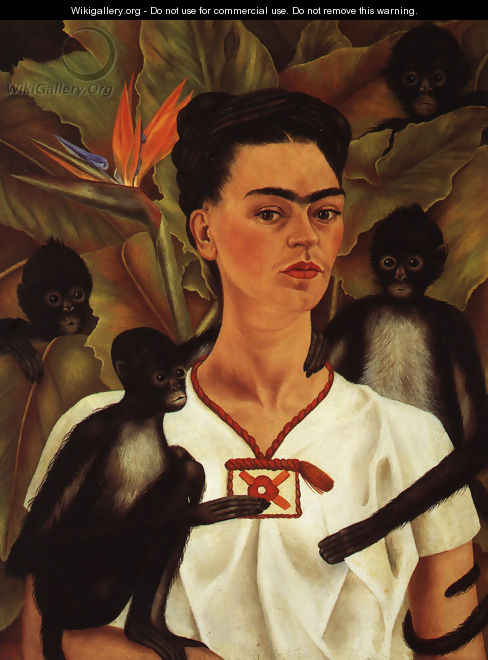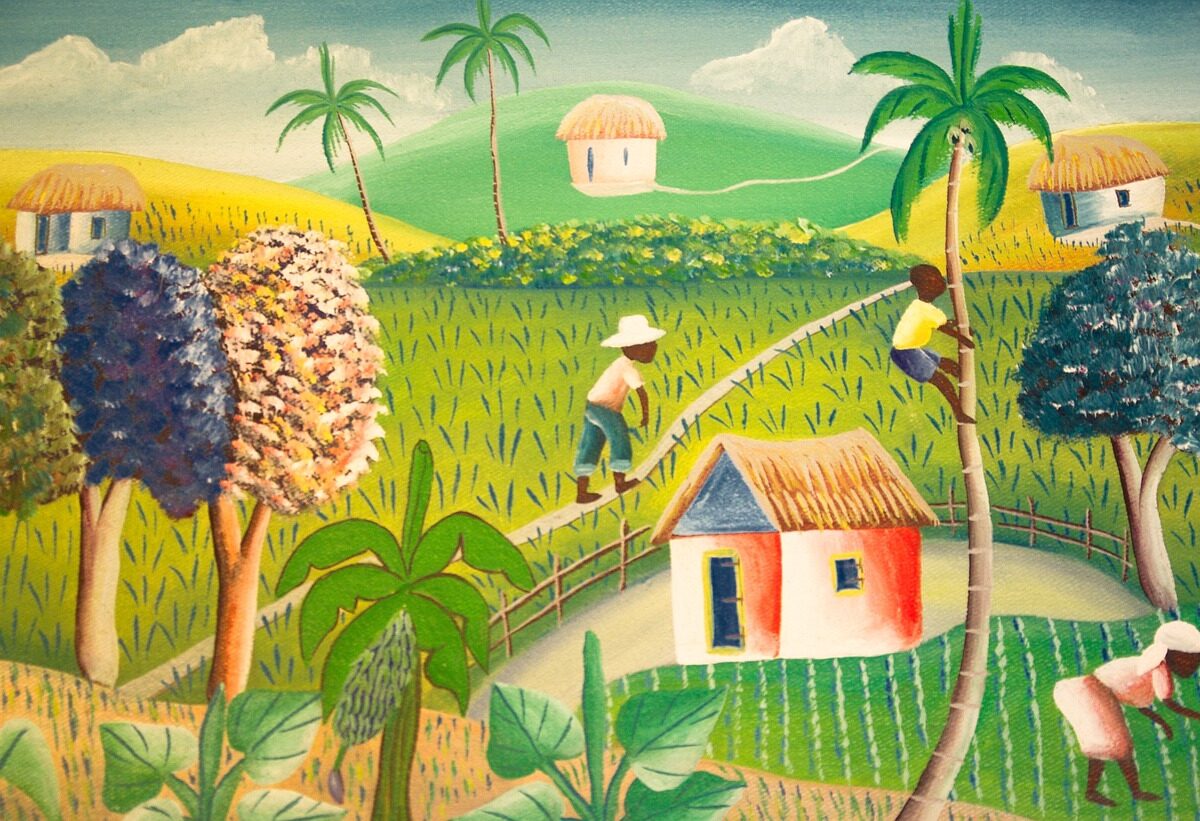I spotted this book over at the FeministReview, who noted, “for those interested in American history, civil rights history, women’s history, or Mexican American history, this book should be at the top of your reading list.”
“The book starts out by defining the cultural differences between Mexican Americans whose families have lived in Texas since before it became a state and recently immigrated Mexicans—a difference that many modern Americans still struggle with.
Orozco then delves into the history of the League of United Latin American Citizens, or LULAC as it is commonly known by, as well as other organizations that were influential in the Mexican-American civil rights movement.
She also takes on the issue of gender inequality within Mexican-American society and how this affected the civil rights movement and modern scholars’ perception of the women who participated in it.”
No Mexicans, Women, or Dogs Allowed: The Rise of the Mexican American Civil Rights Movement by Cynthia E. Orozco
Founded by Mexican American men in 1929, the League of United Latin-American Citizens (LULAC) has usually been judged according to Chicano nationalist standards of the late 1960s and 1970s. Drawing on extensive archival research, including the personal papers of Alonso S. Perales and Adela Sloss-Vento, No Mexicans, Women, or Dogs Allowed presents the history of LULAC in a new light, restoring its early twentieth-century context.
Cynthia Orozco also provides evidence that perceptions of LULAC as a petite bourgeoisie, assimilationist, conservative, anti-Mexican, anti-working class organization belie the realities of the group’s early activism. Supplemented by oral history, this sweeping study probes LULAC’s predecessors, such as the Order Sons of America, blending historiography and cultural studies.
Against a backdrop of the Mexican Revolution, World War I, gender discrimination, and racial segregation, No Mexicans, Women, or Dogs Allowed recasts LULAC at the forefront of civil rights movements in America.
This book sounds like a really valuable read!







Great post..of interest also is a documentary called 'A Class Apart'… pbs.org/wgbh/americanexperience/class/introduction
Sounds like a extraordinary read. As a member of LULAC, I'm always amazed to read about the history behind the progress already made. Indeed, while things have changed, much work remains to be done. Thanks for sharing.
You ought to also be cautious to check out the rolex replica sale that happen to be being supplied and get your 2018 replica watches and watches store at a discount. Rolex watches show time accurately and are robust, sturdy and reliable. Here however the date is gone so it helps unclutter the dial but if I wear to get a open replica watches uk one I would stick to the steel model. Diamonds are an optional element on the rolex watches. If you select the rolex replica uk with diamonds, rather than having them set on the case or used as hour markers, three attractive stones are set on small cones placed on the right side of the dial. They serve replica watches particular functional element, but add to the art of the watch. Without the diamonds, the rolex replica uk where they would normally sit is empty.